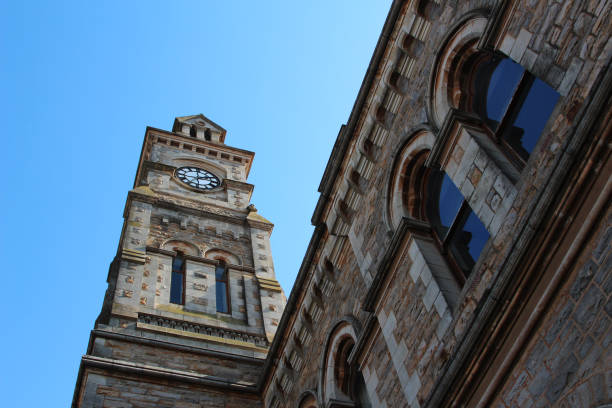This will be a year of instability for local government according to ANC Chief Whip in Makana Mabhuti Matyumza. He quickly explained to senior councillors and officials at a meeting yesterday in the council chambers that wage negotiations among employees would loom large on municipal agendas.
However, whatever rumblings labour might generate said Matyumza, there would be no shake-up in Makana Municipality as a result of former president Jacob Zuma’s resignation. He was speaking to Grocott’s Mail in an interview after chairing the Infrastructure and Technical Services Portfolio Committee meeting yesterday. Grocott’s asked the local ANC and DA how the national transition to Cyril Ramaphosa, sworn in as President yesterday, would affect local politics.
“We don’t anticipate any changes locally – either politically or administratively,” Matyumza said. “That is speaking as chairperson of the Makana Subregion as well as Chief Whip of the Makana caucus in Council. I can’t speak for the provincial government, though.”
He said the ANC in Makana welcomed Zuma’s resignation. “We are happy he has shown maturity as a disciplined cadre.”
But the party’s policies remained the same irrespective, he said. “Ramaphosa will still be carrying out the policies of the ANC.”
He said the party’s national executive committee would address members in the Sarah Baartman Region tomorrow.
“What is new is that the ANC in the Province has agreed to intensify caucus support for the Makana caucus,” Matyumza said.
Regional Secretary Scara Njadayi, in a statement issued by the party’s REC yesterday, said they welcomed Zuma’s resignation, which was long overdue. They had sought a shift leading up to the ANC’s (2012) Mangaung conference, “based on the observations that there are rogue elements happening under his leadership”.
Njadayi said Ramaphosa was faced with the enormous task of stabilising collapsing State Owned Enterprises, boosting the economy, promoting investor confidence and curbing corruption.
“Obviously he has to appoint capable and credible ministers who can carry out the task diligently and restore South Africa to [a place that is enticing to the]continent and the world.”
Njjadayi said the people expected that the ANC policies of expropriation of land without compensation and free education would be translated into government in order to achieve radical socio-economic transformation.
Grocott’s asked DA spokesperson in Makana, Mlindi Nhanha, if the moves at the top were likely to make Makana Municipality function better or worse, given factional rifts in the majority party that formed faultlines to the top.
“Something very drastic has to obtain in Makana if we are to become more functional. It’s something more than lip service, unfortunately, it’s in the hands of the governing party,” Nhanha said.
“I’d better not comment on internal ANC matters enough to say, at provincial level there are signs that a big axe is hovering. Let’s wait and see where will it fall.”
How did the DA anticipate Ramaphosa’s presidency would translate down to local government level in terms of policy and service delivery?
“We are a little sceptical since he sat in Zuma’s cabinet for four years and also was an ANC NEC member for many years and didn’t raise a finger. If he does the right thing, we will support him. But if it’s more of the same, we will oppose him as we opposed Zuma. I am not so optimistic about policy shift translating into improved service delivery, because it’s the same faces in office.”
At the time of going to press, Makana’s acting municipal manager had not yet replied to our question whether, if Zuma were prosecuted on corruption charges, Dr Jacob Zuma Drive would be renamed or his Freedom of the City status in Makana revoked.



